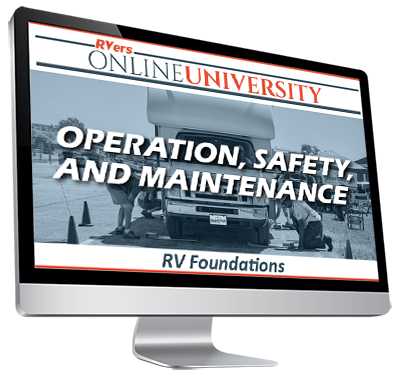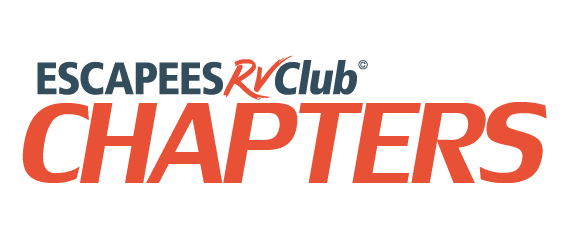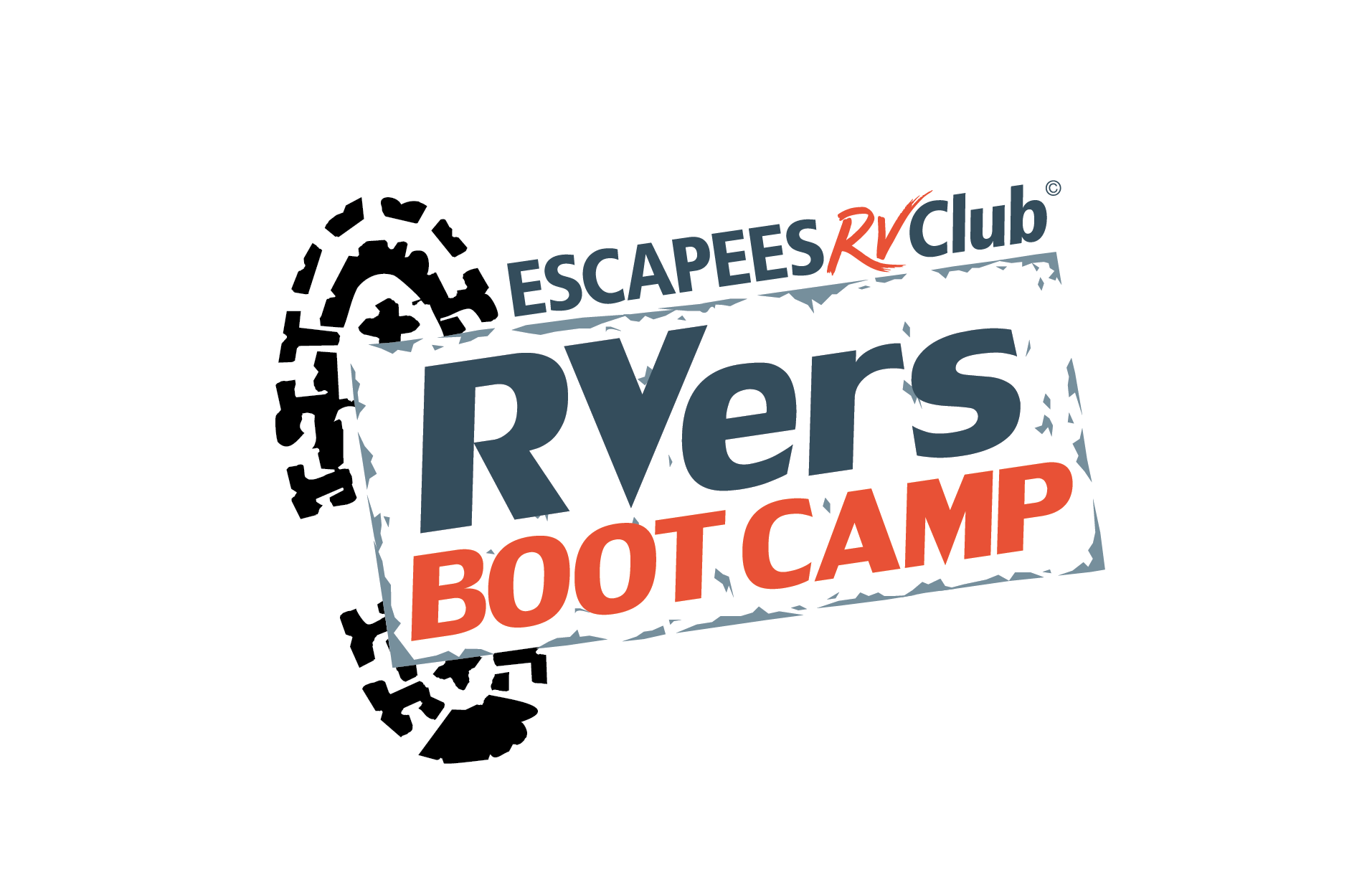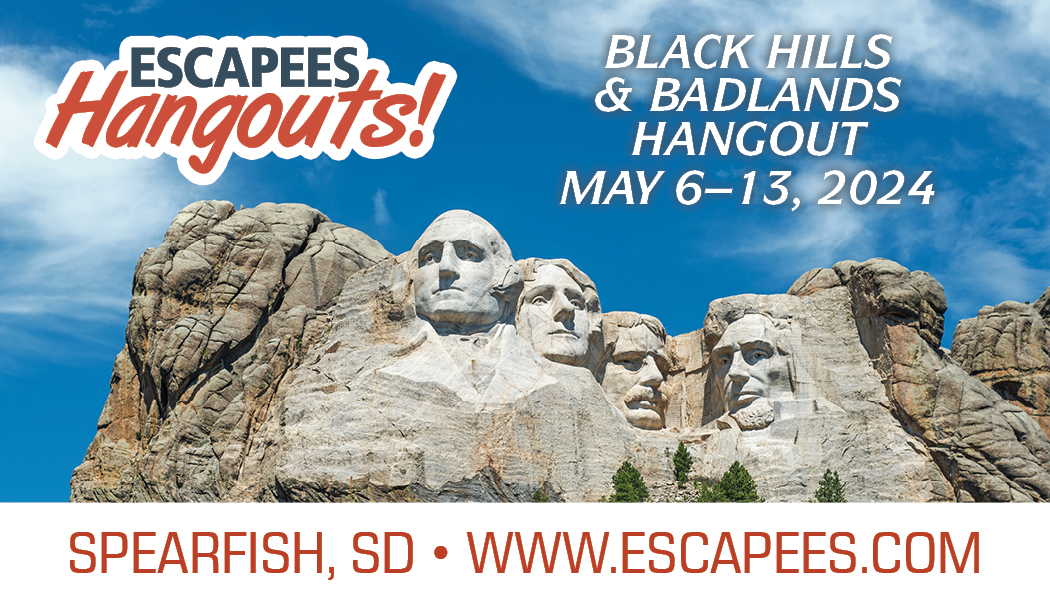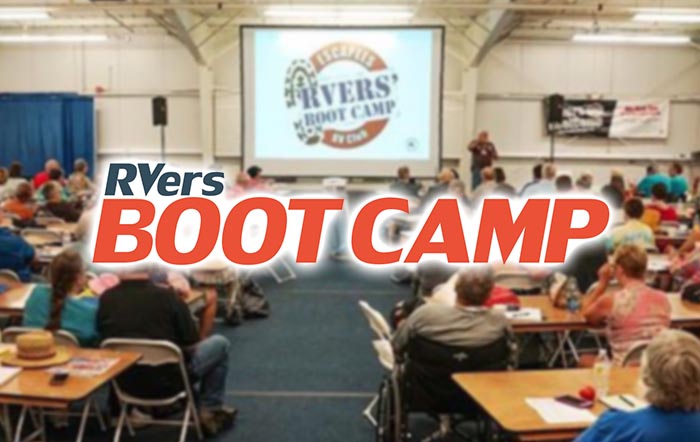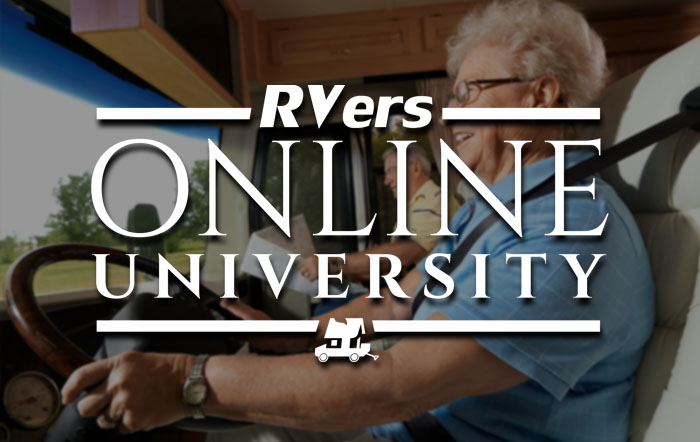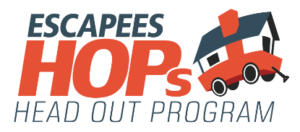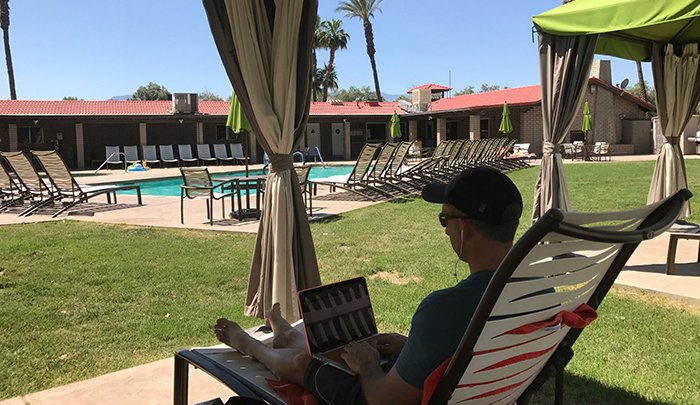
It’s only May and already it’s been a big year. I got really sick (again), quit my job, we started a new business and we’re about to enter our 4th year of full-time RVing. For the first time in over a year, I was finally able to sit and reflect on my journey navigating remote working from an RV, work-life balance, health challenges, and how our life continues to change in response to our desire for more freedom. I hope what I’ve shared helps you ask some bigger questions of yourself and your own life, and consider what success, health and happiness is worth to you. This article is long but meaty, so grab a drink and settle in.
The price we pay to work
Most of the people we meet on the road are retired and they often assume that we are on vacation. They’re often surprised to learn I have been working a ‘regular’ 8-5 job for a company and I have been able to work remotely from the road. It’s been amazing being able to travel while still generating the same income we had when we lived in our stick and brick home. We hear a lot of people say “but it’s OK for you – you have a remote job”. But it hasn’t always been that way – I know from experience there are plenty of opportunities to make a change if you want it badly enough.
You could say I’ve had a very diverse career, with a job history that looks something like this: paper delivery boy, janitor, grocery store clerk, chauffeur, construction worker, call center employee and manager, massage therapist, fitness contest judge, police officer, marketing brand analyst, IT variant configurator, project manager, and most recently – Director of Operations for a nutritional supplements company. Most of those roles – as it is for most other people – required me to be physically present to do my job. But as technology advanced, I began seeing more and more jobs that people were able to do from home. And from the moment I learned about that, I wanted to work from home too. I’m an introvert, so I need down time to recharge my batteries. The higher the social stimulus, the more time I need to recover. I’ve also found that I am most productive in a very quiet environment. I remember people in high school and college who would join study groups and/or listen to music while studying because they need the extra stimulus for their brains to work best. By contrast, I preferred to be at home, with complete quiet and even chose to do some group projects as a team of one, even though it ended up being more work. Clearly this is not the way everyone likes to work, but it is what I’ve found to be most productive – and enjoyable – for me.
The idea of working from home just made sense to me – and not just for my own benefit. Sure, I loved the idea of avoiding the time wasted on commutes, the expense of buying clothes specifically for work, the ability to have lunch in my own kitchen and take my dog for a walk on breaks instead of just walking around the building by myself. But it benefits companies too – as remote employees save the company money by not needing as large of an office building and they have the freedom to recruit talent from a broader geographical area – as my employer did. That said, I realize that not all people function as well working from home, and some roles (even if they could be done remotely) may benefit from synergistic opportunities when working together in person. And obviously, some hands-on jobs will require a physical presence, until robots or other process improvements make them redundant.
The change begins
My IT variant configurator role could have easily been done from home, and I would regularly explore this idea with my manager, but was continually told “no”. As an older, more conservative company they just didn’t think that way and liked their employees where they could keep an eye on them. I didn’t like being in the office, but at least the commute was short enough to allow me to go home at lunch to walk my dog – and I had a window to look out of from my cubicle desk. My role with the company was OK, but not terribly fulfilling, and often stressful. One day they re-organized some departments and my window desk was relocated to the middle of the room where I could no longer see outside. It wasn’t that I looked outside often, but at least being able to see it in my peripheral vision made me feel more connected to the outside world. From the day my desk was moved, I started giving more serious consideration to finding a new role, with a more progressive company that would be more aligned with my interests and aspirations and enable me to work remotely. Funny how what seems like such a small thing, can lead to such big shift in our lives.
That was in April 2013. I hired a career coach, updated my resume and LinkedIn profile and by mid May had landed a new job with a newly created role within the company that I have been working with for nearly 4 years. It’s young, progressive and in my ‘home’ industry of health and wellness, nutrition and fitness. My role as Operations Project Manager was a new challenge and learning curve with a nice step up in salary, but more importantly, I would be working from home right after my initial in-person training. I was excited to be a part of the new company and really enjoyed working with such a dynamic and successful team that was doing great things to help people improve their health and lives. They had recruited a talented and entrepreneurial team from all across the country and nearly everyone worked from home. In fact, there wasn’t even a centralized physical office until 9 months after I started. Ironically, setting up their Golden, CO office was one of my projects – and my last while still living in Colorado.
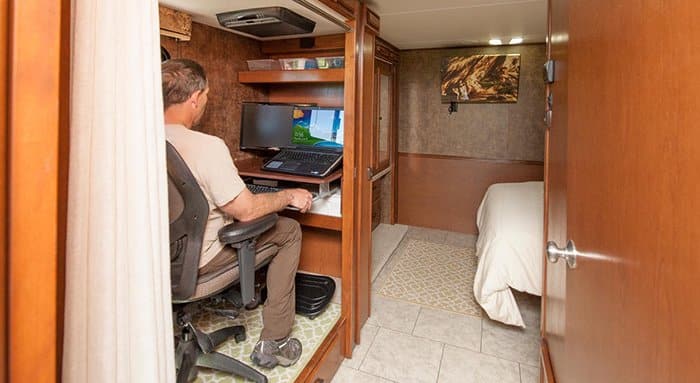
Moving my office from home to an RV
A few months after working from home, Julie and I were enjoying the fact that we had created a lifestyle that freed up more personal time and allowed both of us to be home together during the day. We started to think about what else we wanted to create for our future, and that’s when we started envisioning more travel in the years ahead. I remembered one of our other employees across the USA saying they were working from a family member’s lake house that week. This got me thinking about incorporating more location independence within my own schedule and how it might allow us to travel more without using my precious little vacation time. I had the realization that as long as we had a solid internet connection, we could literally be anywhere. Once I learned about cellular hotspots being able to provide a wireless connection, the idea of working from a motorhome became a very tangible reality.
If you have been following us for a while, you know the rest of that story – and how we made the transition from our home to living and working from a dedicated office space in our RV. At first, I told very few people, but after two years on the road, I felt comfortable to talk about it when I was featured in a company newsletter, which made it pretty widespread knowledge. Senior leadership were mostly very supportive. Some even enjoyed living vicariously through me as they had worked from RVs in the past when doing consulting work, but not as regular employees.
We needed to make internet connectivity a high priority because I had regular meetings and was expected to be online and reachable from 8-5 Central Standard Time (CST). I would sometimes work more, but I’ve always held very strong boundaries for work-life balance and rarely worked more than 50 hours in a week, usually holding close to 40 hours. I was performing very well remotely and frequently offered promotions and accolades for my performance.
I resisted most efforts for promotion as I have a theory that too many people get in such a race to climb the ladder that they climb right past the rung they were the happiest on.
I remained in my role and continued to contribute to the company as an indirect member of the executive team, and indirectly leading co-workers without having direct responsibility for them. I was in my sweet spot. It mostly worked well for our RV travels too as it allowed us to maximize my limited vacation time by reducing the travel time to get to destinations. Instead of needing to take time off to travel to the Grand Canyon, we would slowly work our way to the area and then camp AT the Grand Canyon so when I was done with work for the day, we could step out of our rig to enjoy it. Yes, it can be a challenge working all day with such exciting attractions just outside your door, especially as most of our neighbors aren’t tied to a desk all day, but I was disciplined and recognized that it was my work that financially supported our RV lifestyle and travels.
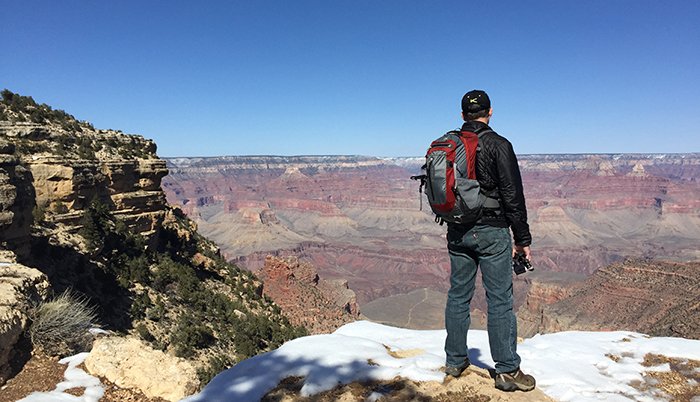
How long are you going to do this?
People at work would sometimes ask questions like: “Do you still like living in your RV?” and “How long will you keep doing it?” My answer was always the same: “I love it and I have no plans to stop in the forseeable future.” And I would then respond with a question to illustrate a point: “Do you like to travel?” They would usually say yes. “Where have you been in the last year?” Sadly, the typical response was “nowhere”. If they had used any of vacation time at all, it was mostly to catch up on projects at home, or a quick a trip to visit family out of town. I would then list off 10, 20, 30 or more amazing things that we had seen in our travels in the past year alone. Amazingly, we even managed to spend a month in Australia without any of my work colleagues noticing. It was bit rough working on the other side of the clock (midnight to 9am) but worth it.
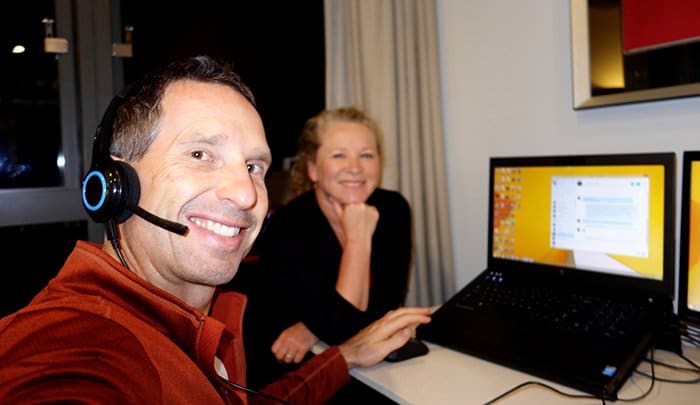
I didn’t talk about our travels and experiences to be boastful or make my colleagues jealous, but rather to inspire them to what is possible, and when delivered the right way, it did nearly always inspire them to go out and travel more too. That is actually one of my very favorite things about what we do in our daily lives and via this blog, YouTube channel, social media and email newsletters.
We love helping people and inspiring them to live a life they love. But that inspiration always needs to start with inspiring ourselves by living a life WE love.
You might be wondering why would I ever want to change my work situation – when it seems like I’ve got such a great gig going? Well, there are some far greater reasons that threw weight behind my decision to leave. We all know that nothing stays the same forever. And as much as I loved my job at times, my role continued to change and evolve, and despite my efforts to stay on my happiest rung of the ladder, inevitably, I was forced into higher and higher responsibilities and increasing demands on my time. Those demands eventually broke many of my work life boundaries and started to tip the balance away from life and to work and burned me out. I found myself regularly working intensively more than 50 hours a week, and my health and happiness were paying a price. And that was a price I was not willing to pay long term.
This work life balance shift is especially challenging when you are surrounded in your daily life by people who are retired, on vacation, had less gruelling schedules or were otherwise financially independent. I found inspiration in others that were working for themselves as contractors, consultants or running their own business, which offered even more flexibility and freedom than I had. Which reminds me, I should probably caution you if you have not started yet living life on the road, as that the freedom can become addictive – the more you have the more you want.
Freedom, health, time and love are the ultimate measures of wealth and when you have them, you want more – for yourself and for others.
This is what drove me to focus on how we can add more of those forms of currency to our own lives. If you don’t have your health and freedom, what is financial wealth really worth?
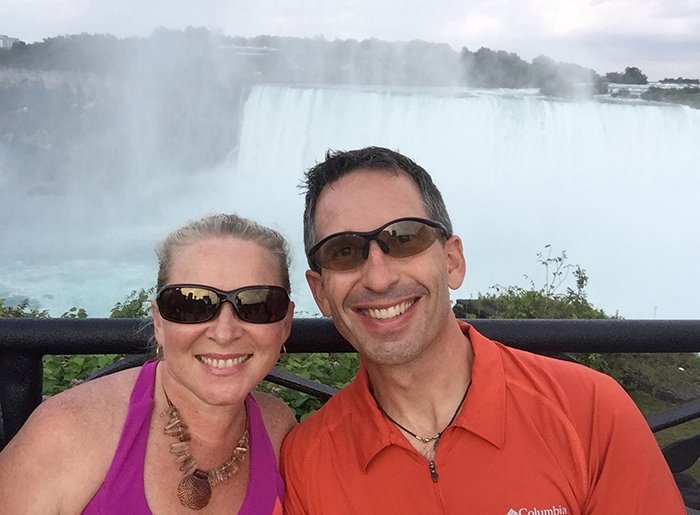
Time to refocus on our definition of success
Julie and I began making plans for my eventual exit from my job to shift to a consulting role that would reduce the stress and free up our time and schedule a lot more. We wanted true location and time independence. We wanted vibrant health, and not end up sacrificing our personal health and wellbeing for our employers.
I’d had a few stress-induced health challenges over the years, but could feel I was reaching a critical tipping point this time – mentally, physically and emotionally. Stress and pressures show up in people in many ways – frequent small colds, constant headaches, chest pain, self medicating with alcohol, drugs or other distractions and addictions to temporarily escape the stressors. We’re all unique in the way stress manifests itself in our lives and health. And we all have a weak spot where that stress starts communicating more loudly with our bodies that something has to change. One of my close friends was having serious digestive symptoms and they thought he had stomach cancer (he didn’t). I know what kind of high level demands he is under at work and how it affects him – I believe his symptoms represented he could no longer ‘stomach’ his high stress job. When I asked him about it, he admitted “I know this job is taking years off my life” but he wasn’t prepared to leave it because of other obligations – mostly financial.
Know and respect your weaknesses
For me, my weak spot is usually my central nervous system. I’ve had bouts with chest pain and even checked into an emergency room once when it was especially bad – to confirm I wasn’t having a heart attack (I wasn’t), but mostly it’s my nervous system that gives way first – usually with shingles, or Post Herpetic Neuralgia (PHN) which is basically shingles but without the rash. The pain is intense and can last for months at a time, and it is a kind of silent suffering because there usually isn’t an external evidence of it.
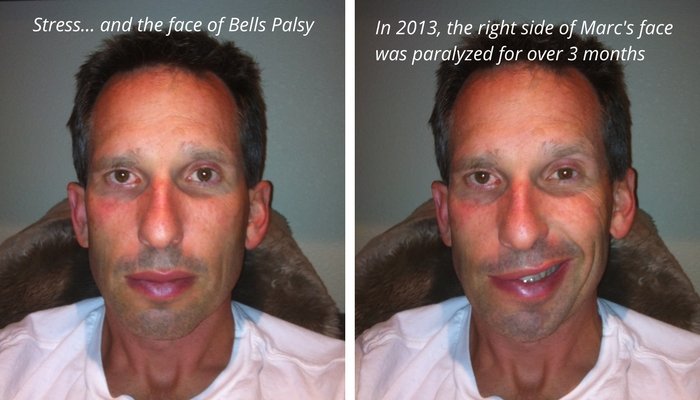
I say usually, because I have also had Bells Palsy, which is related to the other conditions but involves paralysis of one side of your face, which makes you feel (and look) like you are having a stroke. I’ve only had it once, but it’s scary as it’s so unfamiliar, uncomfortable and physically obvious, and it wore me down emotionally. They don’t really know what causes it and it is self correcting for most – but stress is the most common culprit. Within about 4 months, my face recovered about 90-95%, but I still see it when I look in the mirror or see photos of myself today, especially if I am tired. Admittedly, there’s a little part of me that is glad I never regained that last 5-10% because it is a bit of an early warning system for me and a reminder to take care of myself. Similar to when I start getting the all too familiar tingle of PHN or shingles, my body is warning me that some serious nerve pain is on the horizon if I keep on pushing myself.
While my first experience with nervous system related condition – shingles – occurred 15 years ago (when our family dog died) recurrences have become far more common over the last 5 years in my higher stress roles and even high stimulus situations where I don’t get enough downtime. My episode with Bells Palsy in early 2013 happened during my last few months at my previous employer. I’d gone on vacation over the holidays and had a highly social time with zero down time for over 3 weeks, which weakened my system. In the last couple of days I began dreading returning to work and my body threw up the red flag with the Bells Palsy.
The last 3 years have brought on multiple bouts with the nerve pain, always following high stress periods at work. I am not sharing any of this for sympathy – as I believe your body is sending you signals to make some changes – but to help explain how I knew I was at a critical breaking point again. In sharing my story, it may also to help you to pay attention to the signals your own body might be sending you, instead of trying to mask the symptoms until it turns into a much bigger and more serious condition. Unfortunately, some people just aren’t as sensitive or attentive to their bodies and end up ignoring, masking it – which doesn’t make it go away unless you also make some positive changes.
Workaholism doesn’t make you a hero
I believe the American society has serious challenges with work addiction or workaholism. There is so much pressure to always be ‘on’ and available for many jobs, including constant calls and emails after hours – employers expect it and employees do it. So many people associate so much of their personal sense of value and worth with their work. We were recently deeply disturbed to hear our close friend say “it’s normal for people to only like 5-10% of their jobs” while his wife stood there nodding in agreement. He accepts that his job is literally making him sick and taking years off his life, and that liking only 10% of his job is better than average. I told him, the day my enjoyment at work drops below 50% I am out of there.
Personally, I have worked with a lot of aggressive and driven type A personalities that regularly work 60-70 hours a week and wear it as a badge of honor, speaking to their dedication to their role, even though they are only getting paid for 40 of those hours because they are on salary. In reality, their hourly rate ends up being awfully low for the personal cost. I find it terribly sad that people will dedicate so much of their time and health to a job that in most cases will continue on – with or without them. How much better would life be if they tipped the scales and dedicated the same effort to their personal relationships, health, and well-being? Wouldn’t they be a better, healthier and happier example for their partners, kids and friends? I’m pretty sure the divorce rate would drop and families would have many more fun times together. Maybe even spend more time RVing around this beautiful country we live in? 😉
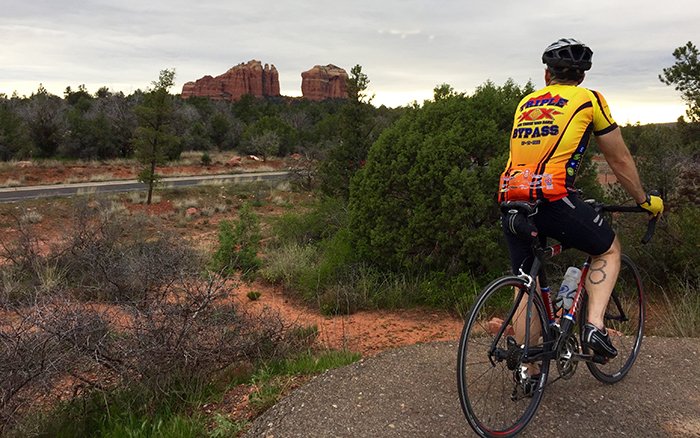
The end of one road and the start of a new one
I entered 2017 fully knowing it would end very differently to how it started. I’m a loyal, high producing employee – but to a point. I know my limits and I knew when it was time to stop. My employer had a major milestone to reach by the end of January and so I stayed on to help them reach that, contributing what I could with my declining health, but Julie and I had already agreed that I would leave as soon as that milestone was reached – regardless of whether their expected outcome was achieved. The only thing that kept me going in those last couple months was the fact that I had already detached mentally and emotionally, and I knew that I would soon be leaving. I saw the light at the end of the tunnel and it wasn’t a train. I distributed my responsibilities across multiple departments and many individuals to ease the transition and had a very amicable departure, scaling my commitment back to just a few hours of consulting each week.
While it took a couple of months to regain my health, I am now feeling well and strong again. Had I stayed longer in my role or pushed harder, those health considerations would surely have been more severe and/or longer lasting. I have known way too many other people that sacrificed their health for work and paid a higher price. I’m proud to have been part of such a talented team that built such a highly successful company over the past 4 years, and I’m sure there will be opportunities to work with many of them again in the future, but my hope is that I won’t need to – at least not full time.
Our goal is that we will make it on our own – working only for ourselves, creating useful content and delivering exceptional value for others. In stepping back I’ve had the time and space to evaluate how to harness my skills, expertise, passions and talents in ways that support my goal of creating more freedom, being of service, giving back and living our lives as a positive and inspiring example of freedom by doing what I (and we) love. That journey will no doubt bring with it a new set of challenges, but it’s one we’re ready to embrace with open arms.
How our RV life makes this possible
Aside from the fact that we’re constantly surrounded by inspiring people who have had the courage to take a risk and pursue their dreams and passions, our RV lifestyle brings with it some additional benefits, in that most of our expenses are variable not fixed. This allows us to quickly adjust the majority of our financial outlay almost immediately. This is a big part of the confidence and support we have around making the decision to leave my job and the regular income it provides. It meant we don’t need to replace my income to get by financially. We only needed a fraction of it to support our lifestyle, as long as we are extra mindful of our expenses. Fortunately we had been putting some savings aside as a financial cushion. It is comforting to have that cushion when your failing health brings you to your knees. It may sound obvious but financial success isn’t just about how much is coming in, it’s also about how much is NOT going out. More importantly, remember that money is only one measure of success and some of the happiest, most joy filled people we have met, had only a fraction of the financial ‘wealth’ of those normally applauded for their material ‘success’. We’re all for creating and enjoying prosperity in our lives, the biggest difference is we’re not defined by it.
It is not more money or things that will make us happy, but more time and freedom.
For me, success is living a life filled with love, health and freedom – with more time to spend doing what I love, with the people I love, when and where I choose. And while leaving my job and stepping into the unknown is a little scary, I am reminded that 3 years ago we were also stepping into the unknown when we left behind our home and neighborhood, and drove off in our RV to start a whole new life. And so far, that’s been working out pretty well 🙂
With my newfound freedom and time, I am looking forward to sharing more with all of you here at RVLove, and the exciting new venture we have been working on for almost two years, on the side, but are now able to give our full attention, focus and commitment.
We’ll be revealing more about that starting on Sunday May 7 and in the days following. Yep, May sure is shaping up to be a huge month and we’re excited to have you along for this next phase of our adventure!
Best of LIFE to you all,
– Marc



